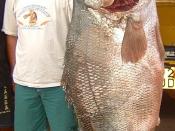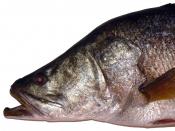Case-In-Point Analysis - � PAGE �5�
Case-In-Point Analysis - SPECIES RICHNESS IN LAKE VICTORIA
Jamila Lewis
University of Phoenix
SCI362 - Environmental Ethics
Facilitator: Steven Goldsmith
August 16, 2010
Case-In-Point Analysis - SPECIES RICHNESS IN LAKE VICTORIA
Lake Victoria, the world's second-largest freshwater lake in East Africa has an abnormal variety of species of cichlid fishes. The ecological health of Lake Victoria, previously the home of about 400 species of cichlids, has been severely affected as a result of "a rapidly growing population, clearance of natural vegetation along the shores, a booming fish-export industry, the disappearance of several fish species native to the lake, prolific growth of algae, and dumping of untreated effluent by several industries" (Chege, 2010, para. 1). Much of this damage is widespread and irreparable.
The different types of cichlids had surprisingly different eating habits. "Some grazed on algae; some consumed dead organic material at the bottom of the lake; and others ate insects, shrimp, or other cichlid species" (Raven, Berg, & Hassenzahl, 2010, p.
83). Today more than half of these cichlids and other native fish of Lake Victoria are now extinct. Because of the extinction of these algae-eating fish, the algal has grown out of control. When an increased population of algae dies, their decomposition uses up the dissolved oxygen in the lake. With too little dissolved oxygen at the bottom of the lake, any fish swimming into the oxygen-free zone will die from suffocation.
"A major contributor to the destruction of Lake Victoria's ecological balance was the deliberate introduction of the Nile perch, a large and voracious predator, into the lake" (Raven, Berg, & Hassenzahl, 2010, p. 83). Supporters of introducing the Nile perch believed that once the fish was successfully established, it would bring the local economy back to...


